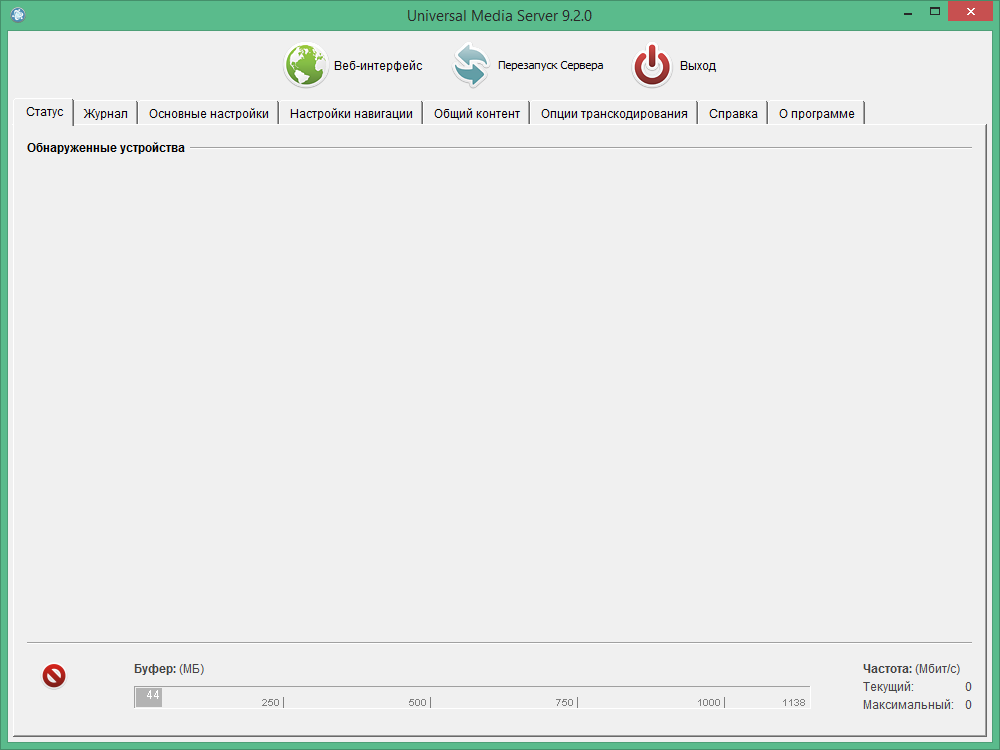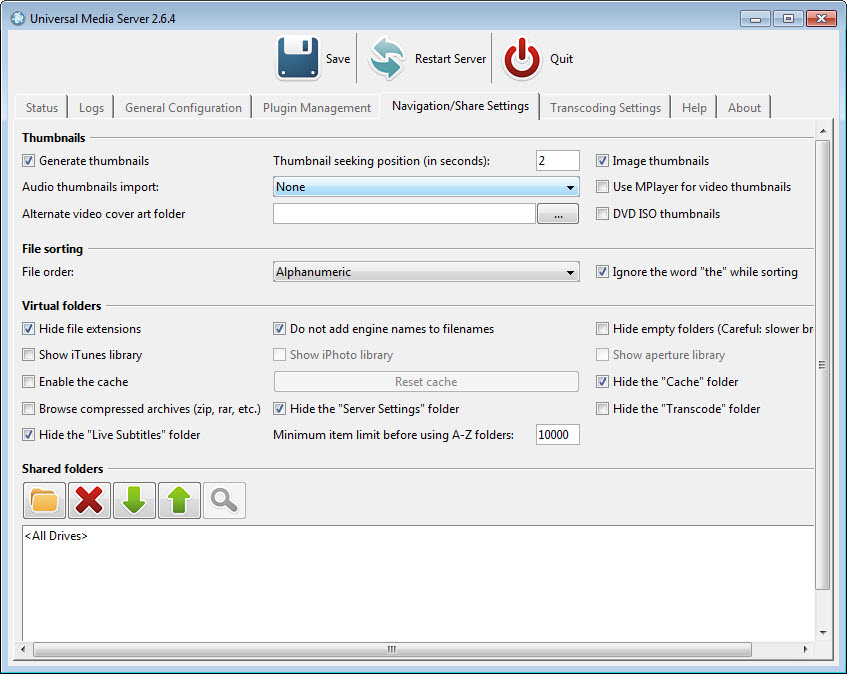

#Universal media server reviews for free
The idea behind GPL is that you can charge money for support and services around the software, and you're also allowed to charge for delivering the software (if you purchase it on CD for example, they'd want to cover their costs from producing and shipping the CD), but you have to make the code available for free so that anybody that doesn't want your support or to buy your CD can build it themselves.

I haven't tried Plex in years, so I don't know where they "draw the line", but I have a principal issue with the "freemium" model so I will stay very far away from software using it.Īnother thing when it comes to Plex in particular of a more philosophical nature is that they make money from GPL software, which is licensed in a way that should make it impossible. Different software "draw the line" between free and paid functionality in different places, so while some will give you a free version that is "fair", others will make the free version virtually useless and often very annoying to use in the hope that you will eventually "give in" and cash out just to get rid of the annoying things. What it does it that it offers a free version, but it makes sure that the things you're likely to want costs money. In addition, Plexs use the "freemium" model which i personally despise. The ONLY protection against this that I can see is open source software, which is why I think it will become more and more essential in the time to come. My guess is that if you strike the correct deals, you can make good money on this. Today we see a lot of "free" software that seems to me to be made simply to be allowed to spy on the user. Things that were simply unthinkable to do to your users just a few years ago have suddenly become accepted because the big ones like Google, Facebook, Apple etc has started doing this and basically gotten away with it. I don't know what Plex does and I'm not alleging that Plex has any such practices, but in general this is becoming a huge problem. Theoretically, open source software can do this too, but since it's open anybody that looks in the source can find out - and thus it's not really a viable thing to do. It can then go on to sell this to the highest bidder or report it to the government or whatnot. It can collect information about your media, your habits or frankly anything is can get access to on your computer. Any software that's not open source can do all kind of shady stuff with your data and nobody would know. To me, it's essential whether something is open source or not. It depends completely on what you need/want.

Both also does things that the other doesn't. UMS does some things better than Plex, Plex does other things better than UMS. I don't think there's a good answer to that.


 0 kommentar(er)
0 kommentar(er)
